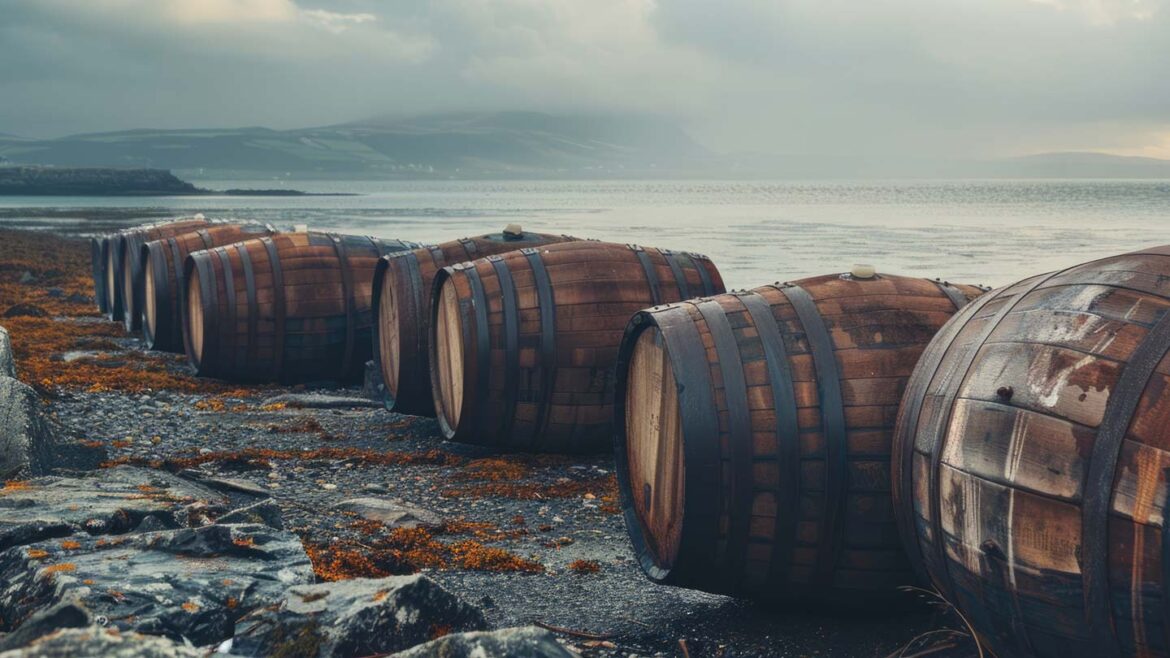
Whisky cask investment offers a compelling alternative to traditional assets by allowing investors to purchase whole casks and let them mature over time. The whisky cask age impact plays a pivotal role in unlocking value, as the ageing process gradually enhances flavour, complexity and rarity the key ingredients for price appreciation. Understanding how age both nurtures and challenges your investment is essential to capitalising on this unique market.
What Is Whisky Cask Investment?
Whisky cask investment involves acquiring full barrels of whisky while it ages in a bonded warehouse. Unlike stocks or bonds, you’re investing directly in a tangible asset, the liquid itself. As time passes, the maturation process infuses the spirit with rich flavours and smoothness, increasing its desirability and market value
This strategy diverges from traditional investments in two key ways:
- Physical Ownership – You own the liquid in the barrel, not just a paper claim.
- Intrinsic Appreciation – Unlike equities, whisky grows in value through the ageing process itself, not just market sentiment.
How Age Affects Whisky Cask Value
Maturation Process & Flavour Development
The chemical reactions that occur during maturation, like extraction, oxidation, evaporation (angel’s share) and colouration, transform raw spirit into nuanced, refined whisky
- These flavour enhancements, including vanilla, caramel and spice notes, increase consumer appeal.
- Over decades, older whisky becomes rarer, as much is bottled or lost to evaporation, driving faster value appreciation. Contact Us
Age Statements and Perceived Quality
Age statements (e.g., 12, 18, 25 years) signal quality and authenticity to buyers. A 25‑year labelled whisky is seen as more desirable than a younger one. This form of perceived quality is deeply ingrained in buying behaviour, especially among collectors and seasoned investors, who often associate older expressions with stronger whiskey investment returns over time.
Aging Potential vs. Over‑Aging Risks
Not all casks improve indefinitely. There’s a sweet spot, often between 15‑25 years, where the flavour peaks and price acceleration kicks in.
- Under‑aged (e.g., <7 years): Low entry cost but slow returns.
- Peak age (15‑25 years): Ideal flavour and potential rapid value growth.
- Over‑aged (>25 years): Gains could slow down; volume loss (Angel’s Share), if the ABV drops below 40%. Excellent cask management is essential to maximise returns, preserve quality and protect your investment.
Quantifying Returns: Value Appreciation Over Time
Data shows a clear compound annual growth rate (CAGR) for casks as they age:
- From 12 to 25 years, CAGRs between 13–22% are common on bottle equivalents.
- Some boutique distilleries yield ~4% additional value per year in their later stages.
- Under historical conditions and for certain cask types and distilleries, whisky casks often offer 8–15% annual returns, with some platforms reporting up to ~14% growth. Though, this is not guaranteed and the value of cask whisky can go up as well as down.
Key Factors Influencing Age‑Driven Investment Returns
Distillery Reputation & Cask Quality
Renowned distilleries (e.g., Macallan, Ardbeg) consistently outperform lesser-known producers in both flavour depth and ROI . Unique cask types (Bourbon, sherry, ex-port) further enhance maturation and market appeal.
Market Demand & Scarcity
Premium whisky demand in emerging markets like Asia and North America fuels price growth. When limited-release aged casks from small or independent distilleries enter the market, demand spikes dramatically. Following the recent UK-India trade agreement, we anticipate a significant surge in demand for Scotch whisky.
Storage Conditions & Legal Documentation
Maintaining optimal warehouse conditions (temperature, humidity, light) is vital to preserve cask quality. Proper legal paperwork, bond registration, ownership transfer, bottling rights is essential to authenticate legal ownership and ensure exit liquidity .
Due Diligence: Timing and Exit Strategy
- Market Indicators: Use benchmarking sites and cask marketplaces to track similar aged casks.
- Age Benchmarks: Monitor your cask’s progression—retirement age 15–25 often yields best returns.
- Cost Considerations: Storage (£75 to £150/year), insurance, bottling, duties, all reduce net profit.
- Sale Timing: Decide if selling to bottlers, through agents or to private collectors is most efficient post-optimal age.
- Tax Planning: In many regions, casks are “wasting assets”, profits may qualify as capital gains, exempt until bottled.
Age Impact in Portfolio Context
- Diversify Age Profiles: Mix young (high growth potential) with older (stable value) casks.
- Compare to Other Assets: Whisky casks have limited correlation with equities or real estate, offering portfolio risk reduction.
- Manage Liquidity: Young casks are less liquid but cheaper, while older casks offer quicker exit potential due to higher demand.
Conclusion
The whisky cask age impact is undeniable, age enhances flavour, scarcity and market value. Strong ROI is often found in the 15–25-year ageing window, offering CAGRs of 8–20%. For those considering whisky barrel investment, wise investors balance patience with market timing, accounting for storage costs, evaporation and optimal bottling age.
To maximise returns:
- Choose reputable distilleries and carefully selected casks.
- Maintain impeccable storage and documentation.
- Monitor market trends and have an exit strategy aligned with age benchmarks.
- Blend cask ages to manage risk and liquidity.
Ultimately, age acts as both catalyst and challenge. Savvy investors who understand and navigate its complexities position themselves to enjoy both financial rewards and the artistry of whisky maturation.
FAQs
- How old should a whisky cask be before it’s worth investing in?
Aim for 12–15 years old or younger. This range balances entry cost and growth potential as the rum progresses into premium age brackets. - Can a cask be aged too long?
No, not from our experience. The Macallan have bottled an 84-year-old expression. - How does cask age impact storage costs and bottling timing?
Storage costs typically remain fixed per cask per year, regardless of age - Does older always mean more profitable?
No, older doesn’t always mean more profitable when it comes to whisky casks. While age can increase value, it’s not a guarantee of better returns.
You must be 18 or over to order with Vintage Acquisitions
*Vintage Acquisitions are not tax experts or financial advisers. If you need further clarification or advice on cask whisky purchasing please contact your financial adviser and tax specialist.
– Whisky cask investments are unregulated in the UK
– Fees apply and these are outlined in our terms and conditions
1. Vintage Acquisitions are not tax experts. If you need further clarification or advice on cask whisky purchase please contact your tax specialist or accountant.
2. We are not financial advisers, and the information in our brochure and on our website is purely to inform you about the nature of the Scottish whisky industry so that you can make an informed decision should you choose to buy a cask. We recommend you to speak to your financial adviser in the first instance.
3. The value of cask whisky can go up as well as down. If you wish to speak to someone regarding the cask buying process or any points raised in this guide or our website, please don’t hesitate to contact us.
4. If you wish to sample or bottle your cask. Please be aware duty and VAT will be due before the whisky has been bottled and the finished goods are removed from the HMRC licence warehouse. This remains the responsibility of the cask owner.
5. It is advisable to perform regular health checks on your cask every 3 years. Cask services are chargeable to the client, these include, regauging, samples and photographs.
6. Our WOWGR certificate (Departmental Trader Registration Number: 127 4643 13/0001) issued by HMRC, authorises us to store cask whisky in any appropriately approved Scottish excise warehouse. Therefore, we store casks of whisky across a number of distilleries and HMRC approved facilities in Scotland.

